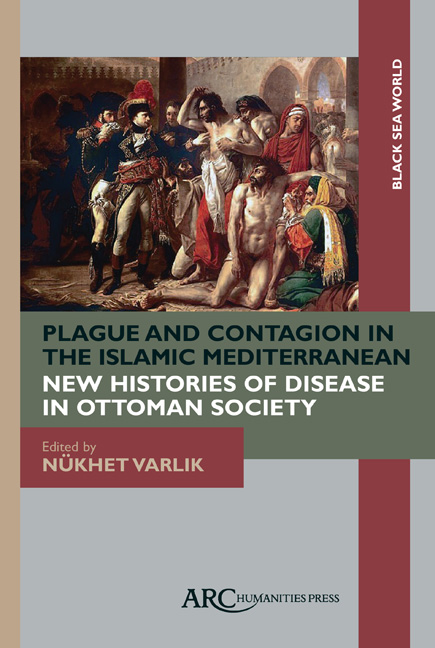Nowhere to Run To, Nowhere to Hide? Society, State, and Epidemic Diseases in the Early Nineteenth-Century Ottoman Balkans
Published online by Cambridge University Press: 25 January 2021
Summary
IN THEEARLY part of the eighteenth century, a Hungarian military commander in the service of the Ottoman army recounted in his memoirs the following story he heard while over-nighting in the Ottoman town of Karasu (Cherna Voda) in northeastern Bulgaria:
Late at night four men with hoes and shovels came to the yard of an Orthodox priest and began to dig and throw earth as if they were making a grave. When he heard the noise at his door, the priest came outside and asked what these men were doing. They replied that they were burying a corpse. The priest asked that they dig the grave elsewhere, but the men kept on digging. The priest pondered the situation and asked if the corpse had died of the plague. Yes, the diggers replied, he died of the plague. Scared, the Priest offered the men three bottles of wine if they agreed to dig their grave elsewhere. They kept digging. The priest offered four jugs of wine then five. While this bargaining was taking place the Priest observed that the men had placed the corpse on a plank. Growing ever more scared, the Priest noticed that the digging of the grave had been completed. At this point the leader of the grave-diggers told the Priest that if he gave them five jugs of wine, they would bury the corpse somewhere else. The poor Priest, relieved and feeling saved, gave them the five jugs. The Priest secretly followed the men to see where they were carrying the corpse. With amazement, he saw that the corpse was no longer on the plank, had joined the men, and was drinking wine. The Priest did not know whether to laugh or cry. He had been swindled.
As revealed in this vignette, the appearance and spread of epidemic diseases fostered an atmosphere of heightened anxiety among local populations in the Ottoman Balkans (Rumeli). For many Ottoman subjects in the Balkans flight (for safety and to escape social ostracism) was the common initial response to epidemic diseases. These disease-induced displacements disrupted the collection of taxes, hampered the recruitment of soldiers, and contributed to a breakdown in public order in the Empire's Balkan provinces.
This chapter will analyze the nexus between epidemic disease, human mobility, and the Ottoman state in the late eighteenth and early nineteenth centuries.
- Type
- Chapter
- Information
- Plague and Contagion in the Islamic Mediterranean , pp. 221 - 242Publisher: Amsterdam University PressPrint publication year: 2017



